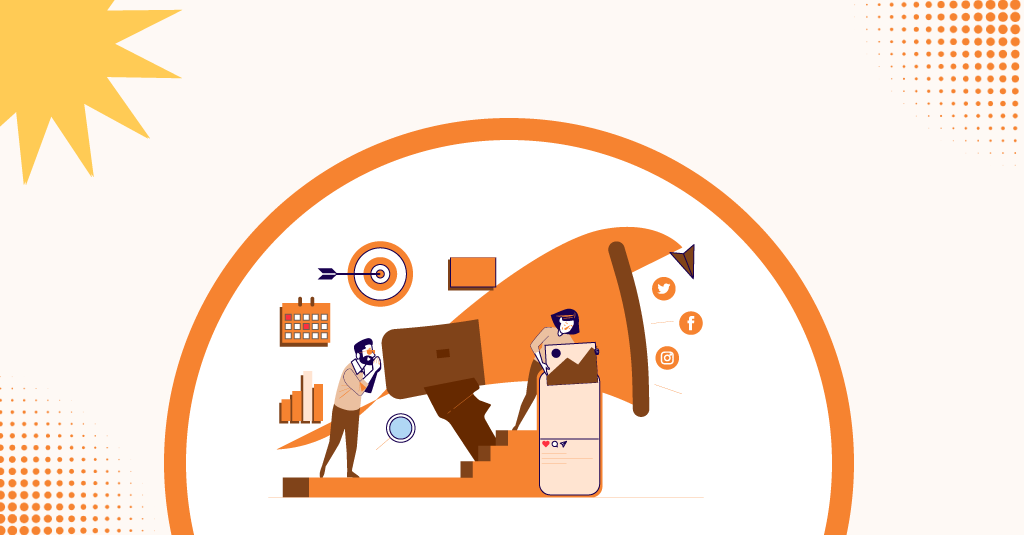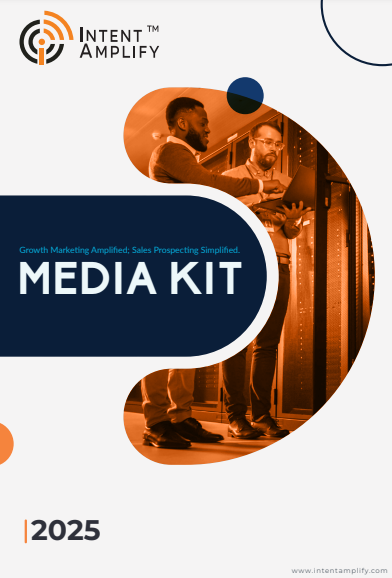
How to Choose the Right Event Advertising Agency
- Last updated on: October 23, 2025
In a rapidly evolving B2B growth environment, hosting an event – whether virtual, hybrid, or in-person – isn’t enough. Standing out, driving engagement, and generating a pipeline from an event requires a sharp, strategic approach. That’s where selecting the right event advertising agency becomes a critical decision.
According to recent industry data, 41% of event professionals are hosting more events in 2025, reflecting the growing confidence in events as a core driver of marketing ROI.
A misaligned partner can waste spend, miss key accounts, and dilute your brand. A well-chosen agency, however, can amplify your event, drive high-quality leads, and accelerate business outcomes. Here’s your guide to choosing the right event advertising agency – one aligned with your growth objectives, audience profile, and long-term value strategy.
Why the “Right” Agency Matters?
Events remain a significant part of B2B go-to-market playbooks. However, the market has changed: inboxes are overflowing, attendees are very selective, sponsors are getting tired of their repeated involvement, and buyers are asking for relevance. Industry data reveal that attendees are less engaged when events are perceived as being generic or not well-targeted. Thus, it is up to marketing departments to collaborate with agencies that not only understand the event ecosystem but also the modern buyer’s journey.
Within an event, the term “advertising” no longer simply refers to the placement of a banner or the sending of a blast email. It is about creating awareness in the right accounts, encouraging registrations of qualified attendees, and then following through in nurture and pipeline. The right agency is like an additional team of your growth engine – they are the ones who can implement omnichannel campaigns, use data-driven targeting, optimize creatives, and measure meaningful insights.
So, if you make the right choice, you will be able to:
- Connect with the decision-makers who matter long before the event is underway.
- Impinge on the attendees with offers that will yield actionable leads during the event.
- Keep the ball rolling post-event to turn kinter into a pipeline.
Key Evaluation Criteria
You can best determine the right agency to handle campaign advertising for your event by looking at different areas of their business – and pairing each area with what looks like strong performance in it.
1. Audience Targeting Precision
All the other elements of the campaign will not work if the message is not delivered to the right audience.
An efficient agency is to provide:
- Targeted access to event-specific lists (such as attendee lists, geofencing conference venues, behavior-based signals)
- Targeting based on Intent data (buyers who are actively researching your category)
- Filters on firmographic & demographic (e.g., company size, revenue, title, industry)
When deciding, consider: Is the agency in possession of the contact data of the already engaged B2B people apart from your CRM? Do they offer the possibility of targeting far beyond the normal email database? Can they break down specific titles, functions, and attributes of a company for you? Sound targeting makes sure that your money is spent on the right accounts and personas.
2. Omnichannel Promotion Capabilities
Present-day purchasers are not influenced by a certain media channel alone. They use various media channels such as email, display, social, native, video, and retargeting. By using only one media channel, you limit your audience extension. According to eMarketer, 60% of B2B marketers plan to increase investments in social-media advertising and AI tools in 2025, highlighting a major shift toward integrated, data-driven engagement.
A well-known agency should implement a multi-touch orchestration across:
- Display / HTML5 / video ads on high-traffic industry sites
- Retargeting (known and anonymous visitors)
- Email campaigns with high-performing messaging frameworks
- Native ads within publisher feeds and social platforms
See if your agency can find your target market where they already are, and not only where they have the media. The omnichannel approach creates the likelihood of conversion and, also, event brand awareness increases.
3. Support for In-Person, Virtual & Hybrid Events
After the pandemic, most B2B events are a mix of in-person, virtual, and hybrid formats. You might be limited by an agency that only “does webinars” or only “does trade shows”. The best fit agency will:
- Use local and digital media to increase the traffic to a trade show booth or event
- Inform targeted accounts about the executive roundtable or networking sessions through promotion
- Have virtual attendees ready for webinars through lead generation and drive engagement for passive registrants
- Adjust the campaign to hybrid models effortlessly – combining physical presence with online reach
Have they been behind events structured similarly to yours (your format) within your industry? Do they have the capability of switching between virtual and live? A flexible agency is one that is on the same side as your event strategy instead of limiting it.
4. Post-Event Lead Enrichment & Nurture
Event success doesn’t stop when the last session ends. Many firms drop the ball here – yet this is where the pipeline either accelerates or stalls. A high-performing agency should:
- Enrich attendee and lead data with verified contact titles, account info, and firmographics
- Surface high-intent leads (who engaged, on what content, and with what session)
- Enable post-event engagement (retargeting, follow-up emails, content syndication)
- Hand off to sales in a timely, structured way
When evaluating, ask for examples of how the agency supported post-event nurture – not just delivered a list of names. Rich data + rapid follow-up = higher conversion from event to opportunity.
5. Transparent Reporting & Attribution
You need more than a “registration count” or “impression” number. Your agency must provide transparent metrics, attribution models, and meaningful insights. Look for:
- Campaign KPIs: CTR, CPL, impressions, opens, conversions
- Attribution insight: which channels and tactics drove which registrations and leads
- Lead enrichment data: verified contact details, firmographics, signalling
- Ongoing optimisation based on real-time data
A partner that reports in the weeds, not just high-level buzz, allows you to understand ROI, optimise future campaigns, and feed insights into your broader demand-gen engine.
6. Creative Strategy and Execution
Even with perfect targeting and channels, weak creative will underperform. You want an agency that:
- Crafting messaging aligned to your ICP’s pain points and event objective
- Designs landing pages, ad visuals, and email creatives that resonate with your brand and audience
- Tells a compelling story for your event – not just “register now” but “why it matters to you”
- Balances brand building (awareness) with conversion (registration)
Review their creative portfolio. Do they show strong B2B work, not just consumer campaigns? Good creative attracts and retains attention – a good creative aligned with targeting and channel multiplies conversions.
7. Team Structure & Workflow Fit
An agency’s internal workflow and team structure significantly influence the timeliness of their execution, the clarity of the communication, and the flexibility of the campaign. Have a look:
- Who is going to take care of your account? Strategist, media planner, creative lead?
- How is the approval process set? How fast can the changes be?
- In which way is the communication done? Regular status meetings, dashboards, and obvious referents?
- What is the way of escalation if things are going in the wrong direction?
Well-functioning, anticipatory communication and flexible performance are particularly necessary for event campaigns, where the time is very limited, and being ready for the launch is essential.
8. Value vs. Cost
The budget comparison is only a part of the decision, not the whole thing. A cheaper agency may save you money, but lead to missing out on leads, incorrect targeting, or poor creative, which in the end costs you more. Concentrate on:
- What are the deliverables? (which channels, targeting, creative, enrichment)
- Lead quality (are the leads qualified, actionable?)
- Strategic alignment (is the agency going to be a partner for your growth beyond just the events?)
- Contract terms (are they flexible, what happens if results are below expectations)
Do not only choose the cheapest agency, but the one that provides the best combination of cost, capability, and business impact.
Putting It All Together: A Step-by-Step Selection Process
Here is a suggested procedure to follow in choosing the advertising agency for your next event:
Step 1: Define Your Event Strategy and Objectives
- Explain your purpose: brand awareness, net-new leads, appointments, pipeline?
- Describe your event concept: virtual, in-person, hybrid – what mix?
- Determine your target accounts, personas, and industries.
- Establish benchmark KPIs: registrations, qualified attendees, cost per lead, pipeline conversion rates.
Being clear right from the start is what makes it possible to choose a partner who is aligned with you from day one.
Step 2: Prepare a Short-list of Agencies
- Choose 3-5 agencies to interview that have credible B2B event experience.
- Industry-specific case studies: Request case studies relevant to your industry or event format.
- Get a focus deck that concentrates on targeting, channels, data, creatives, and reporting. Request a capability deck that focuses on targeting, channels, data, creatives, and reporting.
Don’t expose yourself to an agency that only shows you consumer/event-marketing work — you want B2B results.
Step 3: Deep Dive into Targeting & Data Capabilities
Each agency should be asked: “How are you going to find our most valuable accounts and personas?”
Investigate their database access, intent data, geofencing, and usage of the attendee list. Sample segmentation, targeting filters, and projected reach numbers: Provide examples of segmentations, targeting filters, and the estimated number of people they can reach.
Without delay, you will be able to see which agencies use precision and which employ generic “spray and pray” tactics.
Step 4: Review Creative & Channel Strategies
- Request campaign samples: email templates, ad visuals, landing pages.
- Ask how many channels will be used, and how they sync across channels.
- Evaluate if the messaging is aligned with your event and audience pain points.
The best agencies show both high production value and a strong conversion mindset.
Step 5: Explore Post-Event Follow-Through
- Ask: “What happens after the event ends?”
- Request example workflows: enrichment, lead scoring, nurture sequences, sales hand-off.
- Understand how they ensure leads don’t go cold after the event heat ends.
An agency focusing only on pre-event and during-event misses the largest value driver — what comes next.
Step 6: Ask for Reporting and Optimisation Framework
- How often will you receive performance reports? Real-time dashboards?
- What metrics will you see, and how will attribution be handled?
- How will insights from one event inform the next?
Choose an agency that treats the event campaign as part of your ongoing demand-gen engine, not a one-off.
Step 7: Review Team Fit, Communication & Workflow
- Meet the actual team that will execute your campaign; check chemistry and responsiveness.
- Clarify timeline, review/approval cycle, and escalation processes.
- Ensure communication is transparent, timely, and matches your organizational style.
Good execution often hinges on how well the team works with you smooth workflow = fewer surprises.
Step 8: Evaluate Cost Value & Contract Terms
- Compare pricing across the shortlisted agencies, but focus on value delivered.
- Request breakdowns of what is included (channels, creative, data, reports).
- Understand contract terms: start/stop flexibility, additional costs, performance guarantees.
- Negotiate based on deliverables, not just cost.
An agency aligned with your objectives, with clear deliverables and flexibility, provides long-term value.
Step 9: Make a Decision & Kick-off with Clear Onboarding
- Select the agency that best aligns across all criteria, not just one.
- Define the scope, timeline, objectives, budget, and success metrics in writing.
- Begin onboarding: share event strategy, ICP, past performance data, and creative assets.
- Agree on launch plan, campaign milestones, and review cadence.
A structured onboarding ensures the event campaign starts with clarity and momentum.
Common Pitfalls to Avoid
Even with the best intentions, some agencies may still under-deliver. Here are the common pitfalls and how to avoid them:
- Spray-and-pray targeting: Reaching anyone instead of the right accounts dilutes ROI. Push for tight targeting.
- Channel tunnel vision: Using only one channel (e.g., email) reduces reach. Demand omnichannel execution.
- Neglecting post-event follow-up: Leads go cold if there’s no nurture or enrichment after the event. Focus beyond registration.
- Opaque or delayed reporting: Without insight, you can’t learn or improve. Insist on timely, transparent metrics.
- Poor communication or slow responsiveness: Big mistakes often stem from weak project management. Set expectations early.
- Misaligned creative/strategy: Creative that doesn’t match the event or audience interest will underperform. Review samples carefully.
- Focusing only on cost: Low cost may seem attractive, but poor quality kills ROI. Evaluate impact, not just spend.
By avoiding these traps, you’ll strengthen your chances of partnering with an agency that truly delivers.
How Intent Amplify® Helps You Choose and Get Results?
At Intent Amplify®, we understand how growth-driven B2B organisations evaluate event advertising. With deep experience in lead generation, content syndication, account-based marketing (ABM), and omnichannel demand generation, we bring a strategic lens to every event campaign.
Here’s how we set ourselves apart and support enterprise-grade event promotion:
- Precision Audience Targeting – We build tailored segments based on intent and firmographics, ensuring your message reaches high-value accounts and personas.
- Omnichannel Execution – We launch coordinated campaigns across email, display, native, social, retargeting, and more, ensuring your event is visible across buyer touchpoints.
- Flexible Event Formats – Whether you’re running a major in-person conference, a hybrid session, or a virtual webinar series, we adapt our strategy and tactics to fit.
- Post-Event Pipeline Focus – We don’t stop at registrations. We enrich leads, score them, and hand them over to sales, and drive conversion into the pipeline.
- Transparent Insights – With dashboards and clear reports, you’ll always know what’s working, where to optimise, and how to extract maximum value from your investment.
Choosing not just an event-advertising agency but the right one means selecting a partner aligned with your growth mindset, your audience profile, and your event ambition. At Intent Amplify®, we’re ready to walk that path with you.
Choosing Your Event Advertising Agency
When choosing an event advertising agency, start by evaluating their audience reach and data precision. The right partner should have access to verified B2B databases, intent signals, and targeting filters that help you reach decision-makers who actually matter. Next, assess their channel capabilities. An effective agency executes campaigns across email, social, display, native, and retargeting platforms, ensuring your event messaging stays visible across multiple buyer touchpoints.
Strong targeting capabilities are key. Look for agencies that can segment by title, industry, company size, and buying intent while leveraging geofencing or behavioral insights. Their ability to personalize outreach determines your registration and engagement success. Equally important is event format expertise. Your agency should handle virtual, hybrid, and in-person campaigns seamlessly, adapting strategies to maximize attendance across formats.
Examine their post-event engagement strategy. Leading agencies enrich lead data, score engagement, and support follow-up workflows to turn registrants into pipeline. Transparent reporting and attribution also matter – you need insights into which channels, creatives, and messages are driving conversions.
Evaluate the agency’s creative approach to ensure ad copy, design, and landing pages resonate with your audience and align with your brand story. Pay close attention to team structure and workflow – proactive communication and a collaborative approach are signs of a reliable partner.
Finally, weigh value over cost. The lowest quote isn’t always the best deal. Choose an agency that aligns with your long-term goals, offers measurable ROI, and acts as a true extension of your marketing team.
Final Thoughts
Selecting the right event advertising agency is not a transactional decision – it’s a strategic partnership. The agency you choose will influence not just one event, but how your brand shows up in the market, how effectively you engage target accounts, and how efficiently you convert engagement into pipeline. As you take your next step, define your event goals clearly, evaluate agencies systematically, avoid common pitfalls, and prioritise alignment with your long-term growth strategy.
At Intent Amplify®, we believe that events are more than just moments – they are growth engines. Let’s choose the right partner, execute with precision, and deliver measurable outcomes together.
FAQs
Q1 How soon should I engage an event advertising agency before the event?
At least 8-12 weeks out for in-person/hybrid; 4-6 weeks minimum for virtual formats.
Q2: What should I expect in terms of cost-per-lead from event advertising?
It varies by industry and format – but focus on lead quality and downstream pipeline conversion, not just initial cost.
Q3: Can I use the same agency for multiple event formats (in-person, hybrid, virtual)?
Yes – ideally you should. An agency experienced across formats helps maintain consistent messaging and leverages learnings across campaigns.
Q4: How do I know if my event advertising campaign is performing well?
Track metrics like registrations, engagement rate, cost per qualified lead, and post-event conversions to measure real ROI.
Q5: What’s the biggest mistake companies make when choosing an event advertising agency?
Many focus on price instead of strategic fit. The right agency should align with your audience, goals, and long-term growth vision.




